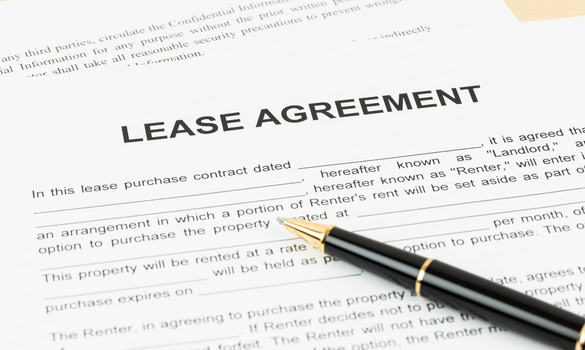
One of the biggest decisions for landlords to make is whether you should provide your tenants with a monthly lease contract or not. In comparison, many landlord like yourself have traditionally favored longer-term agreements. While less popular with individual tenants, long-term lease contracts provide you more flexibility, stability, and allow you to update your rent price in accordance with market conditions. Despite this, many property owners are still allowing their tenants to renew lease contracts monthly. If you are wondering whether you should use a month-to-month landlord lease contract for your tenants, continue reading this post.
Uncertainty Of Rent Duration
If you are considering monthly lease contracts, be aware they leave you with uncertainty surrounding tenant rent duration. Although some landlords find advantages in the flexibility that monthly agreements offer, they frequently do not work in your favor. Flexibility of tenants often increases your chances of short-term renters and tenant turnover. The best renters stay long-term. When they do, you can guarantee rent payments and stability. Short-term rents through monthly lease agreements, remove this aspect. As you consider your lease contract structure, consider how monthly contracts leave you with an uncertain end date.
Reduced Payment Stability
Choosing a month-to-month lease contract structure provides you with reduced payment stability. When renters stay on your property long-term you know their ability to make rent payments and meet deadlines. If you experience high turnover of tenants, you are constantly receiving payments from new rents. It is likely many short-term renters will not provide the same stable payments as long-term tenants. Therefore, the instability of renewing lease agreements monthly, is also accompanied by the instability of monthly payments. If you are considering renewing monthly landlord contracts with your tenants, be aware of reduced payment stability.
Deter Valuable Tenants
Monthly landlord lease contracts can deter valuable clients from your property. Many renters are looking for properties where they know they have rent security. With a monthly contract lease contract, you can constantly raise tenant prices, add new stipulations, or evict renters whenever you like. These restrictions often deter tenants who highly prioritize their home security. In contrast, they attract renters who are looking to rent short-term, with little associated liabilities. Choosing a monthly apartment rental contract structure can deter valuable tenants from renting your property.
Rushed To Find New Tenants
If you offer your renters a monthly lease agreement, you may find yourself rushed to find new tenants. With higher turnover rates, means your property is occupied less frequently. If your tenants can leave at the end of any monthly rent period, you may be rushed to find new tenants on a thirty day notice. Even if there are an abundance of people looking to rent in your area, rushed processes may leave you with less time to screen renters. For example, if you are rushed you may skip conducting a tenant credit report or background check. And as you likely know, tenant screening is the best way to predict a renters’ living and payment patterns. Monthly lease agreements can force you to have to find clients on short notice.
Increased Damages & Repairs
When you utilize a monthly loan contract, you face increased damages and repairs. Being that month-to-month landlord leases attract short-term renters, deploying them may lead your property to become inhabited by a number of different renters. Constant move-ins and move-outs often cause floor or structural damage. Short-term tenants are not as concerned with the appearance and cleanliness of properties compared to those who plan to stay long-term. If short-term tenants paint walls or hang photos, you may be forced to spend additional funds on repairs. Monthly landlord lease agreements may leave you with increased damages and repairs.
Many landlords are torn between whether to offer monthly lease contracts to tenants over longer-term agreements. As you consider monthly agreements be aware they leave you with an uncertain end date. Monthly leases leave landlord with reduced payment stability. In some cases, monthly lease contracts can even deter the best tenants. With higher turnover rates, monthly contracts may leave you with short notice to find new tenants, or even worse, more damages and repairs. If you are wondering whether you should use a month-to-month landlord lease contract for your tenants, consider the points mentioned above.
 Business First Family Business, Accounting, Finance, Investing, Marketing And Management
Business First Family Business, Accounting, Finance, Investing, Marketing And Management